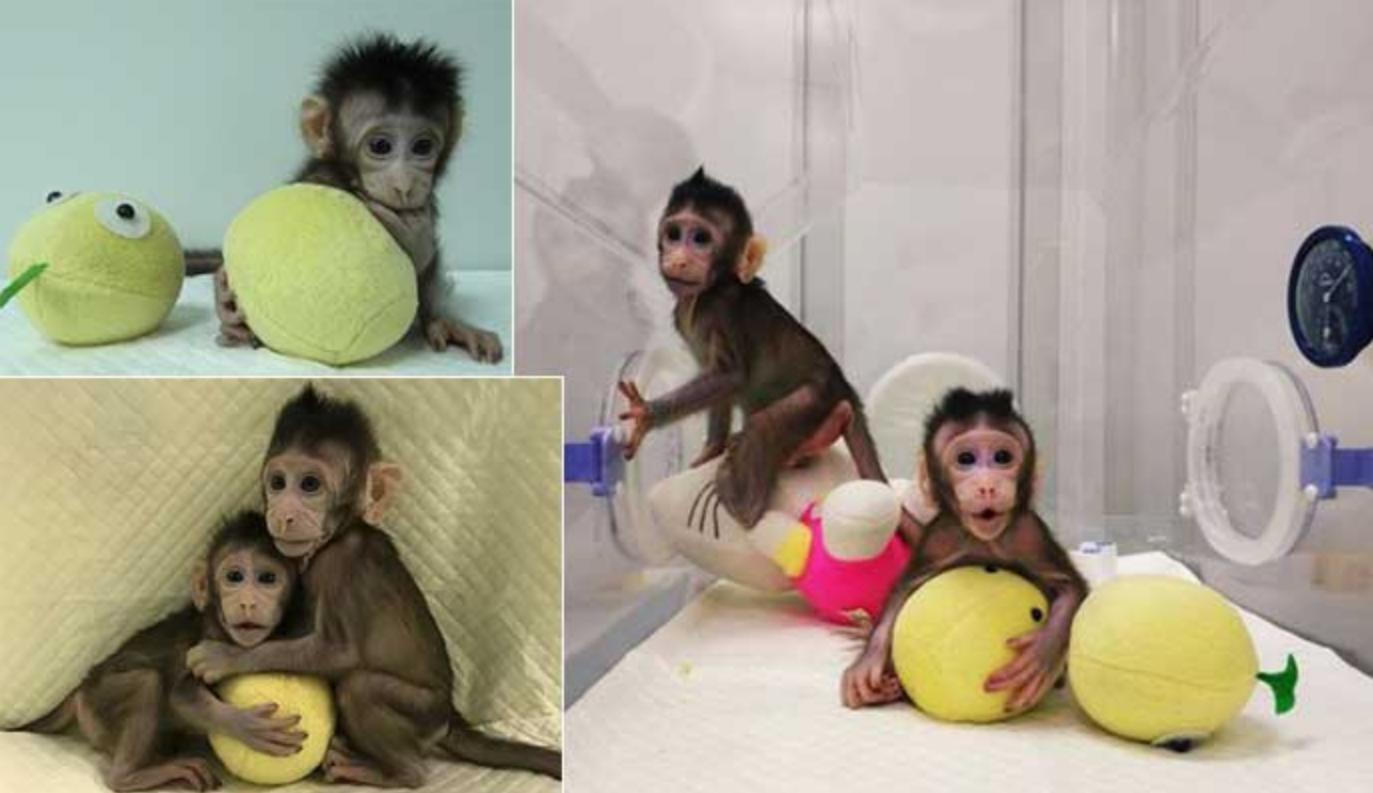China successfully clones monkeys, is human cloning next?
China has successfully cloned two monkeys by using the DNA transfer technique. The experiment is the first of its kind to clone the primates and pave the way for possibilities of human cloning.
Two decades ago, scientists had made history by cloning the first ever mammal Dolly, a sheep, at Roslin Institute in Edinburgh, by using the same method.
Cloning of Monkeys in China
Scientists at the Non-Human Primate Research Facility at the Chinese Academy of Sciences, Institute of Neuroscientists, Shanghai did a series of experiments to produce the results. Director of the academy, Dr. Qiang Sun lead the team. Two monkeys, Zhong Zhong and Hua Hua was born in a laboratory in China, a few weeks back.
The purpose of their production was to get a customized breed of monkeys to do research about different human diseases, which indicates that scientists didn’t aim to pave the way for human cloning.
According to reports, researchers made 79 attempts at transferring the DNA from a single cell’s nucleus but failed. They also tried to clone the monkeys with a different type of adult cells, but they didn’t survive long.
Reports further suggest that scientists strictly followed the international guidelines for animal research.
DNA Transfer Technique for Cloning
DNA transfer technique is common for genetically replicating a whole animal. In this process, scientists use the DNA from the nucleus of the single cell and incorporate it into a donor egg.
In case, of these monkeys, scientists used the same technique. They used DNA from the fetal connecting tissue cells.
Technically, these monkeys are not the first-ever case of primates cloning. Almost two decades ago, scientists had produced Tetra, monkey, by splitting the embryos. Apart from the prospects of human cloning, the embryo split technique naturally produced the identical offspring.
Chances of Human Cloning
It is natural for speculations of human cloning to arise, after a successful experiment on primates. But scientists who conducted this research and expert believes, that this case doesn’t herald the possibility of human cloning shortly in any way.
EveningStandard, quoted Robin Lovell Badge, a cloning expert professor from Francis Crick Institute. “The work in this paper is not a stepping-stone to establishing methods for a live born human clone.”
If human cloning, as speculated, becomes a reality, then the world might face its unpleasant consequences. Further, many ethical aspects don’t favor production a live human clone. But such groundbreaking research in biology in combination with the use of nanotechnology can help in creating outcomes to make the life a better experience.